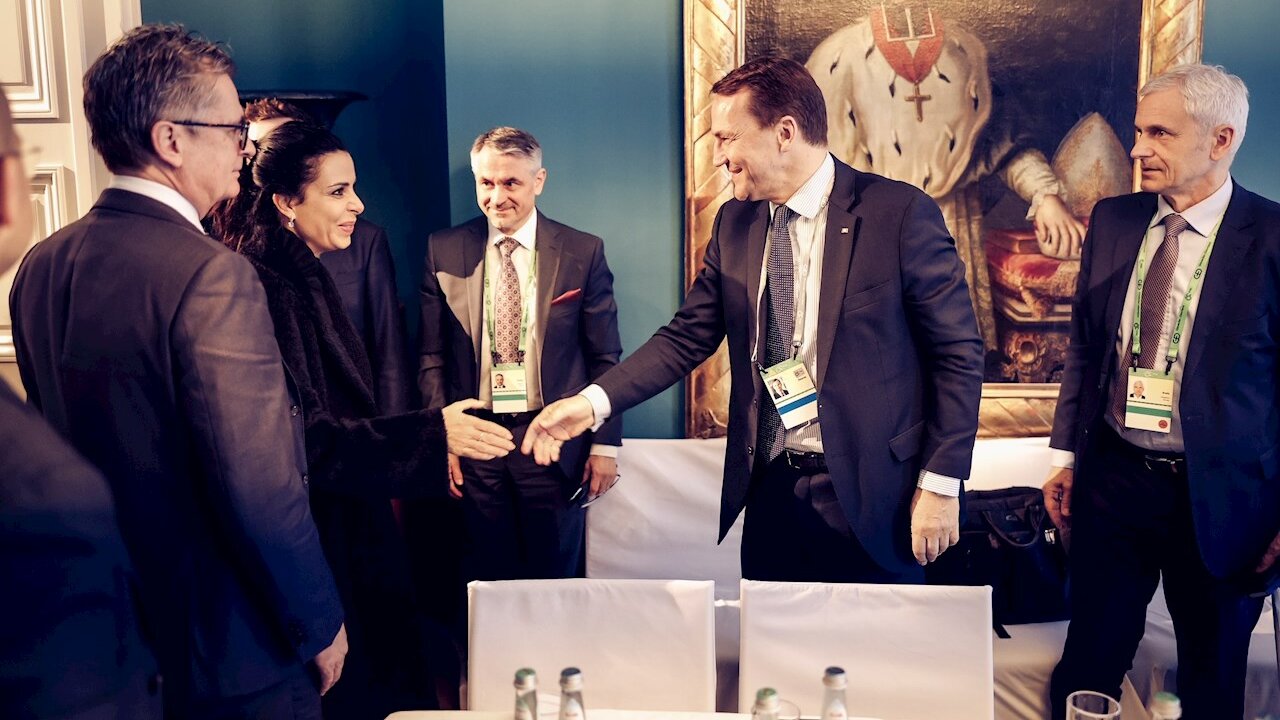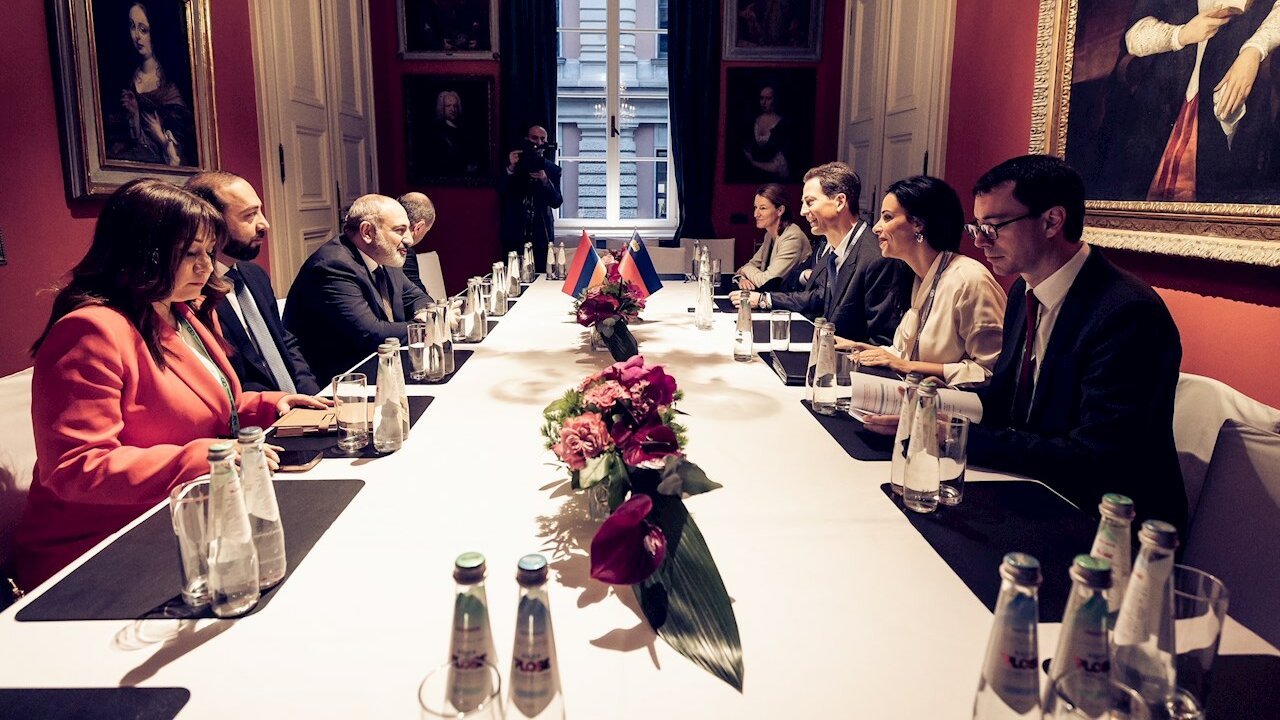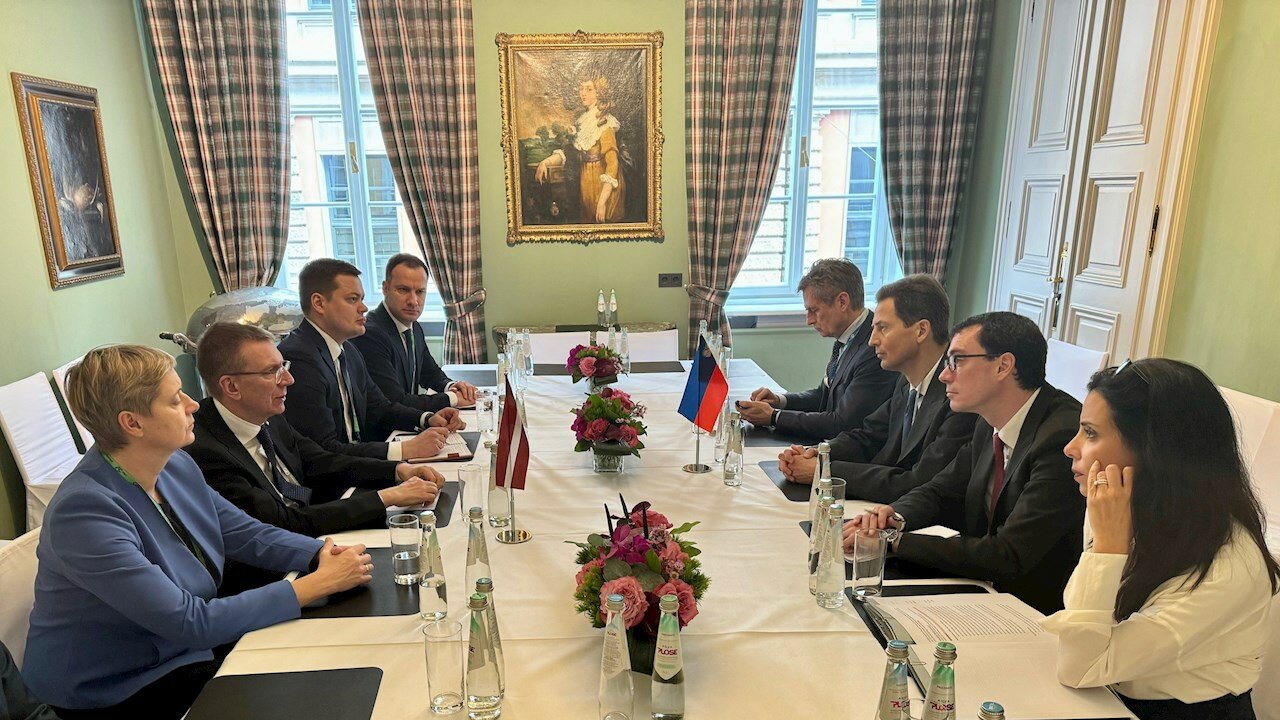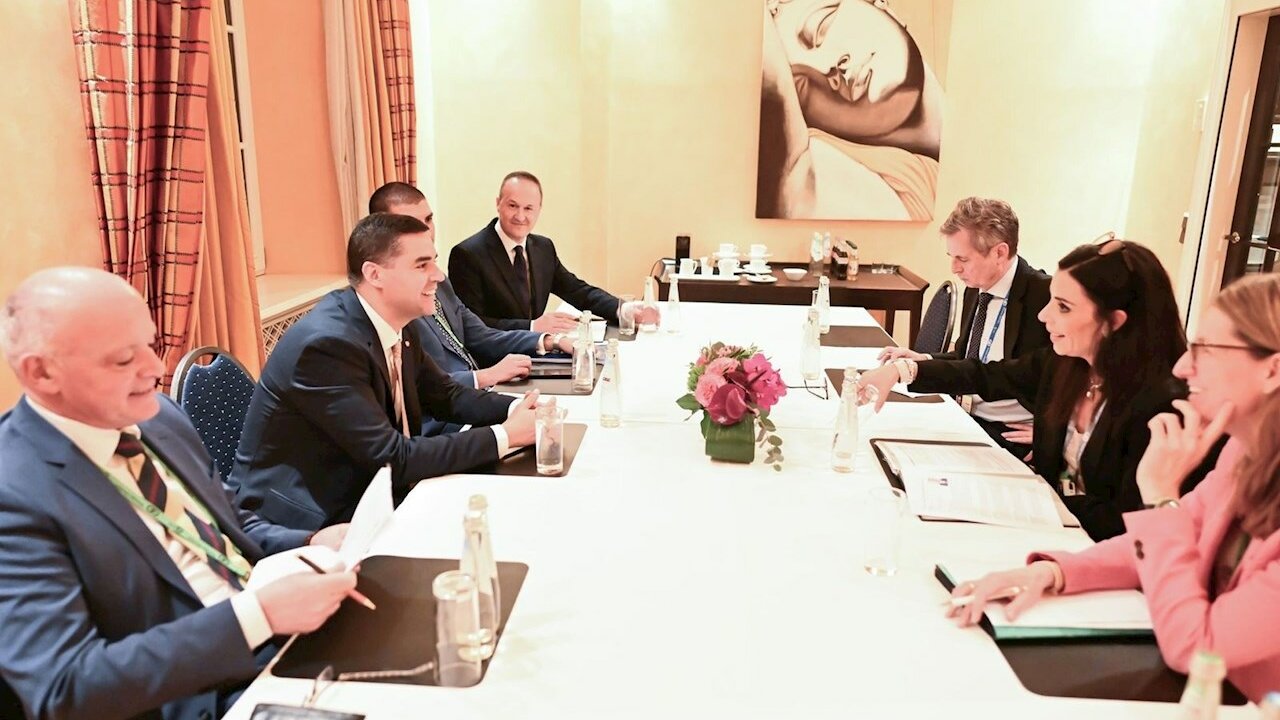Vaduz (ots) -
This year's 60th Munich Security Conference (MSC) focused on current trouble spots and the most pressing geopolitical security issues. The Liechtenstein delegation was led by H.S.H. Hereditary Prince Alois von und zu Liechtenstein, who attended the conference together with Foreign Minister Dominique Hasler.
The three-day Munich Security Conference attracts over 400 high-ranking decision-makers from politics, the military, Economic Affairs Division, media and civil society every year. The conference is therefore an important platform for current and strategic security issues, with a strong focus on transatlantic relations. Of central importance for European security is the further course of the Russian war of aggression against Ukraine and the role of NATO as a transatlantic defense alliance. The future direction of US foreign policy will have a decisive influence on this. Other topics discussed at the MSC included the Middle East conflict, the risk of escalation in the Indo-Pacific, a series of coups in the Sahel region, climate policy and technological progress.
Transatlantic relations as a central theme
The start of the conference was overshadowed by the news of Alexei Navalny's death. US Vice President Harris addressed clear words to Russia and assured the European partners of continuity under President Biden in US support for European security. The USA also made it clear that it was seeking close coordination with Europe on the major geopolitical challenges, from the Indo-Pacific to the Middle East.
Security policy as a task for diplomacy
"For Europe, and therefore also for Liechtenstein in the heart of Europe, there are security issues that point the way forward. The current trouble spots, aggressive great power ambitions and the rapid development of new technologies pose major challenges to our established international order. These developments all have a direct or indirect impact on the economic stability, freedom and security of our country. That is why it is important that we coordinate closely with our European and American partners here at the Munich Security Conference," said Foreign Minister Hasler.
"It must be recognized that with the Russian war of aggression against Ukraine, we are unfortunately entering a new era of conflict that will also present us in Liechtenstein with major challenges. We will have to find our way in this new environment and place our security needs even more strongly at the center of an active foreign policy. Liechtenstein's commitment to the rule of law and multilateralism as well as our strong partnerships form a good basis for this," said H.S.H. the Hereditary Prince in his résumé.
The Liechtenstein delegation used the conference for a series of bilateral working meetings with Heads of State and Prime Ministers and Ministers of Foreign Affairs from countries including Latvia, Armenia, Poland, Malta and Kosovo. Meetings were also held with representatives of the US Senate and the German Bundestag, think tanks and civil society. Key topics included security-related developments for Liechtenstein, the future of European security policy and the role of international organizations in strengthening the international rule of law. Due to its presidency of the Committee of Ministers of the Council of Europe, Liechtenstein currently has a particularly important role to play. The protection and implementation of international law, as well as the reform of central multilateral institutions such as the United Nations, are part of Liechtenstein's traditional commitment at international level.
Embassy of the Principality of Liechtenstein in Berlin
18.02.2024



